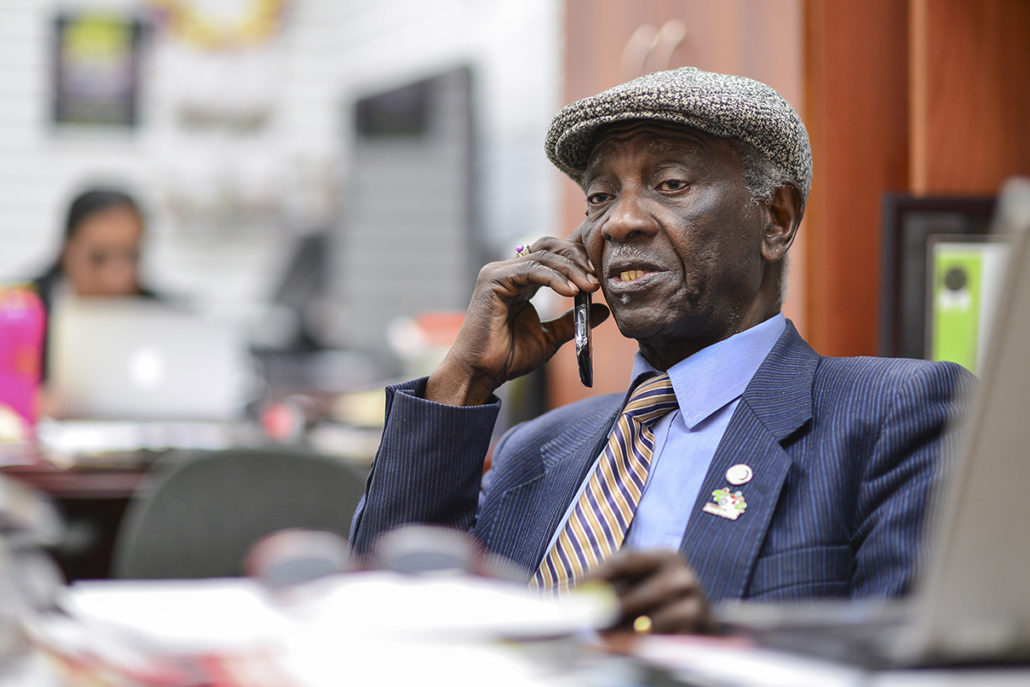
Winston LaRose, the tireless community advocate, is making sure Toronto sees positive changes in his beloved neighbourhood
Wherever you live in the GTA, chances are you’ve heard of Jane and Finch. And you may have an unfavourable impression of this intersection in northwestern Toronto, due to years of negative reporting about the community that surrounds it.
It was this overwhelmingly negative news coverage that drew Winston LaRose to Jane and Finch in 1994. He questioned the negativity then and, 25 years later, is still working tirelessly to bring this area of the city out from under that dark cloud. His dedication to advocacy and community building has earned him the title “Mr. Jane and Finch” and even led to a city council run in 2018 (which the CBC followed in their documentary of the same name). Though LaRose didn’t get elected, the run put him on the map for many people beyond the Jane and Finch community.
Now 81, LaRose shows no signs of slowing down and still has many things he hopes to accomplish. Chief among them is his core mission: to reverse the public’s negative impression of Jane and Finch and replace it with an accurate picture of the vibrant community that captured his heart all those years ago.
We spoke with LaRose about what inspires his advocacy work, what advice he has for other people who want to help their communities and what keeps him going after all these years.
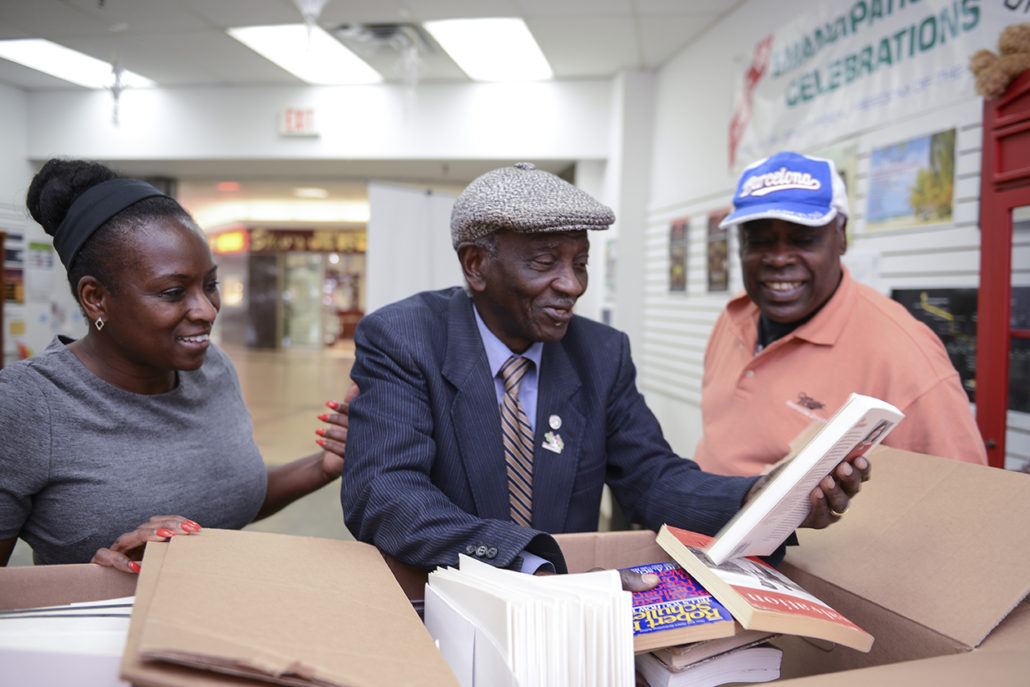
You earned the nickname “Mr. Jane and Finch.” What makes this neighbourhood so special to you?
Jane and Finch, for me, is a place of monumental importance. This is largely because of its developmental capacity—I know that it is going to be the centre of the new GTA as the city expands out to the west.
What are some of the challenges Jane and Finch faces?
Jane and Finch has some unique challenges. Among those are the kind of experiences that drive young people, particularly boys of African descent, to follow a path that leads to school dropouts, gang involvement and drug use. Generally, this is because those boys have been failed by society. I’ve stepped up and said I want to make sure that this changes. I started working with youth, from very young children to young adults, to help them see positivity in themselves. By building their capacity for self-esteem and integrity, I aim to inspire young Black people to take an interest in themselves and believe that they can be a significant contributing force within our society.
Do you have a favourite spot in the neighbourhood?
I like to sit tranquilly at the Black Creek community pool and at Black Creek Pioneer Village. I’ve always loved the Pioneer Village because it is a unique kind of social and historical environment. It’s calm in the summertime and very well maintained.
Where did you grow up?
I was born in 1937 in British Guiana and got my education there. At 18, I decided to study nursing. I was recruited to work in Canada as an operating-room nurse, so I immigrated to southern Ontario in 1964. I worked in psychiatry as well, and came to own a nursing home in Hamilton.
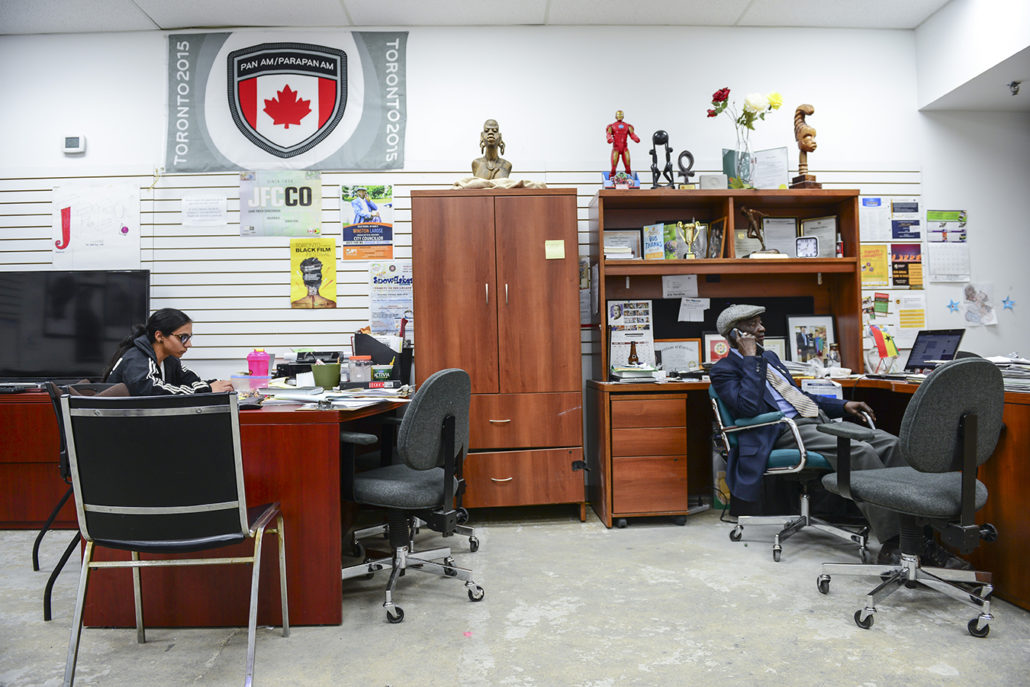
How did you start doing advocacy work?
My work at the nursing home inspired me to do a lot of work in the community. In the 1990s I started working with a Black youth association, advocating on behalf of Black children who were being pushed out of the school system. In 1994, I became interested in Jane and Finch, primarily because of the negative way the community was depicted in the news. I live in Burlington, but I became known for my advocacy in the Jane and Finch area.
What inspired you to get involved with the Jane and Finch community?
Years ago, Linda Morroway, the founder of the Jane Finch Concerned Citizens Organization (JFCCO), of which I’m now the executive director, had a project where she recruited young people of African descent and took them to Ghana to help out there. I thought it was an exciting opportunity, and so I called her, joined with her and came to Jane and Finch. Since then, I’ve been fighting to create a positive image of the neighbourhood, which I think I’ve succeeded in doing.
What advice would you give to others who want to do good in their own communities but don’t know where to start?
You can do good at almost any level. People do good in different ways: some do it from their homes, writing letters to ask for donations, gifts or supplies; others do it by participating in marches (which I did in my youth). But volunteering is essential. I volunteer in my work with JFCCO, and we benefit from the many, many people who donate their time. We have single mothers of children with autism who come to volunteer every Friday. We have about 60 undocumented immigrants (mainly refugee claimants) we help who, despite what they’ve been through and their uncertain situation, still make time to volunteer. It’s very inspiring.
My advice is that everyone can do something, whether it’s in Jane and Finch or your own community, at the provincial level or the national one. We’ve got to give back in our schools. We have to encourage and reward giving back in our homes. I see too much hostility and anger; while I can understand that it’s part of our world, I content myself with ensuring I do good for other people to counteract that.
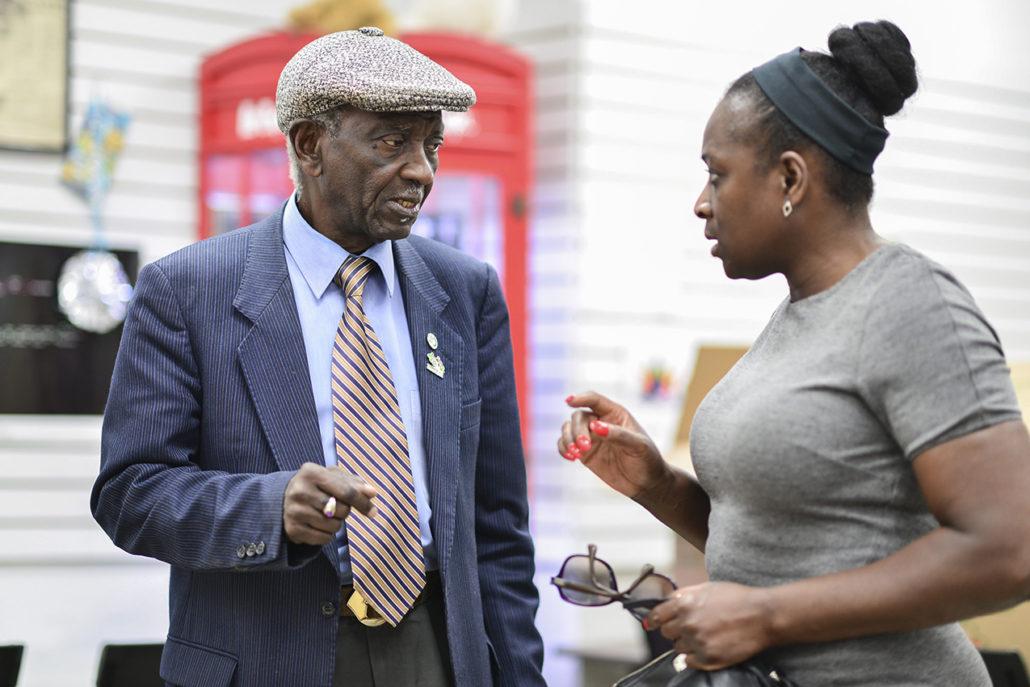
You’ve said your community is like your family. Which younger community leaders do you admire?
There’s a young man named Deijaumar Clark. He’s about 25 now and is trying to operate his own community organization. He was interested in running for school trustee in the 2018 election; I encouraged him and helped with some expenses, as I was also running for city councillor. Deijaumar comes to mind because he’s sincere and articulate, and believes in helping people. During the election, he went up and down the stairs in those 21-storey buildings, handing out flyers and putting his sign in the ground. I’d never seen such a strong commitment from such a gifted young Black person.
Why did you decide to run for city councillor in fall 2018?
I didn’t want to at first, but I thought being a counsellor could help me accomplish certain things for the community. But in the middle of the campaign, Doug Ford decided that he wanted to cut city council in half. Then Tiffany Ford, the Ward 7 school trustee, and I suddenly became opponents. We’d worked together for over 10 years, and now we had to run against each other.
What is a typical day at the JFCCO like?
This is a place for problems. There is no time to worry about my own problems because I’m here to help other people. They come in because their kids have been caught by the police, or there’s a family conflict or a custody matter. You name it, we get it. We help refugees talk to their lawyers. We help tenants with housing matters. We’re located in a mall beside the social services office, so a lot of people come for help filling out forms. I’m here until the mall closes at 9 p.m., so I usually get home by midnight.
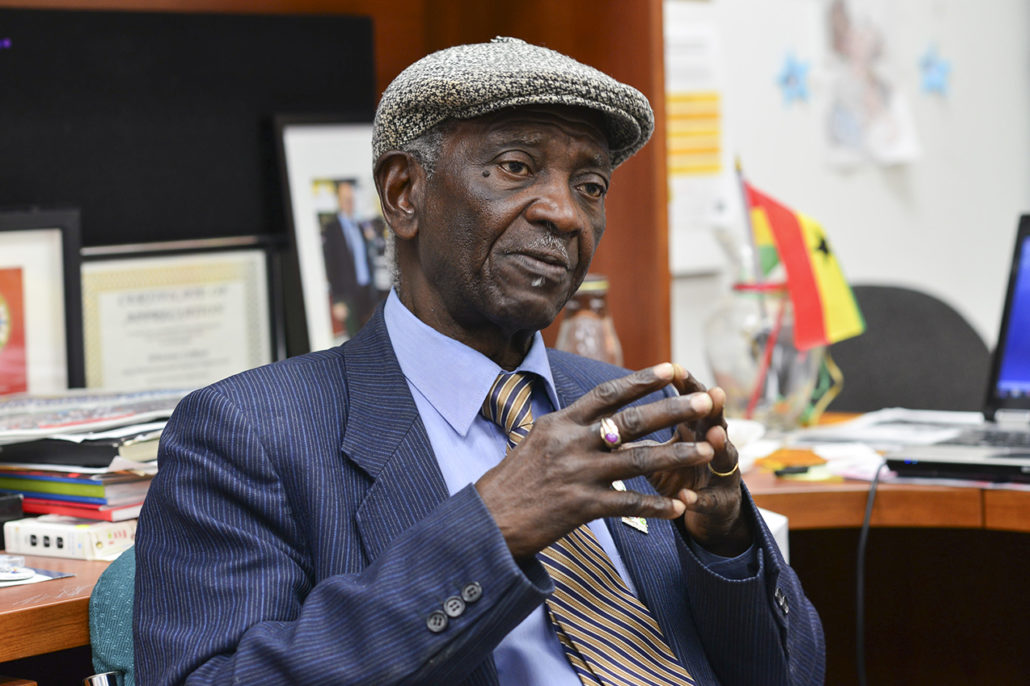
You’re still going strong at 81. What’s your secret?
I don’t stop except to sleep. While I’m awake, I’m thinking about next steps, and there’s always something that needs doing. Working to solve people’s problems vitalizes me. Being able to sustain them—to help with their anxiety, their concerns—gives me energy.
Is there anything that keeps you up at night?
I am always thinking about the fate of young Black men in our society. I think that’s my largest challenge. I think about these youth, who are so alienated—even from themselves—that they are willing to resort to violence or take another’s life. It’s not about guns; it’s about violence. And I say we need to change the architecture of that. Let’s get back to a place where there’s a sense of dignity, where youth are able to see themselves as valuable. I believe that they have the capacity to do an enormous amount of good. If we can give them equal access and preparation so they can reach their full potential, they can be productive in the roles that are expected of them—and Ontario and Canada will be much better off.